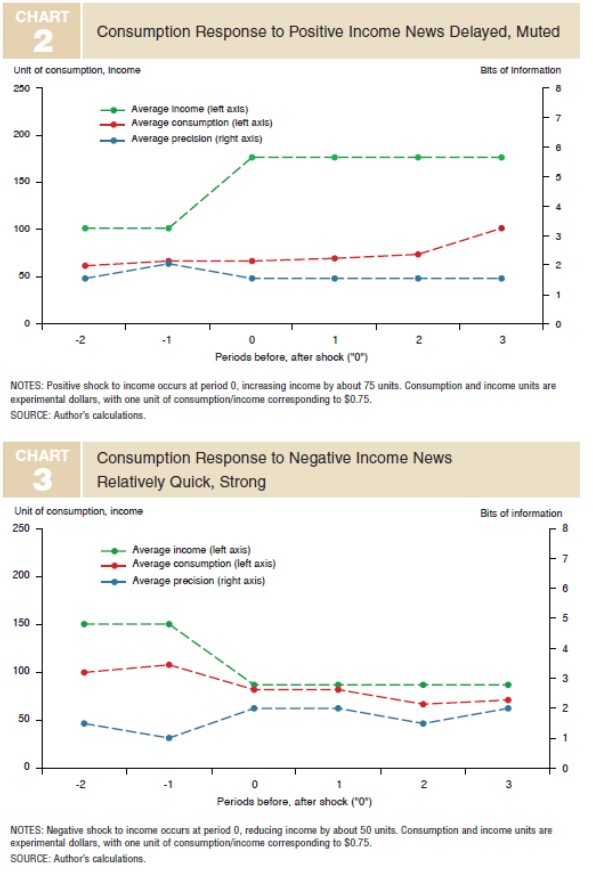
|
 |
| Consumers Response More to negative News than Positive Info |
"The laboratory provides insight into how cognitively taxing it can become for people exposed to changes in the economic landscape to acquire and process information."
|
|
Abstract
Consumers, forced to navigate a constant stream of economic information, are often challenged to sort through details and respond to new material. Experiments suggest that people react more forcefully to negative income shocks than to positive ones. Size also matters: Reaction to small shocks is slower relative to the response to big shocks.
Text Excerpt:
"The laboratory provides insight into how cognitively taxing it can become for people exposed to changes in the economic landscape to acquire and process information."
Charts Excerpt:

|
Federal Reserve Bank of Dallas, Economic Letter, Volume 13, Number 7, May 2018-Antonella Tutino
31.08.2018
|
|
|
|
|
 |
Themes
Asia
Bonds
Bubbles and Crashes
Business Cycles
Central Banks
China
Commodities
Contrarian
Corporates
Creative Destruction
Credit Crunch
Currencies
Current Account
Deflation
Depression
Equity
Europe
Financial Crisis
Fiscal Policy
Germany
Gloom and Doom
Gold
Government Debt
Historical Patterns
Household Debt
Inflation
Interest Rates
Japan
Market Timing
Misperceptions
Monetary Policy
Oil
Panics
Permabears
PIIGS
Predictions
Productivity
Real Estate
Seasonality
Sovereign Bonds
Systemic Risk
Switzerland
Tail Risk
Technology
Tipping Point
Trade Balance
U.S.A.
Uncertainty
Valuations
Yield

|